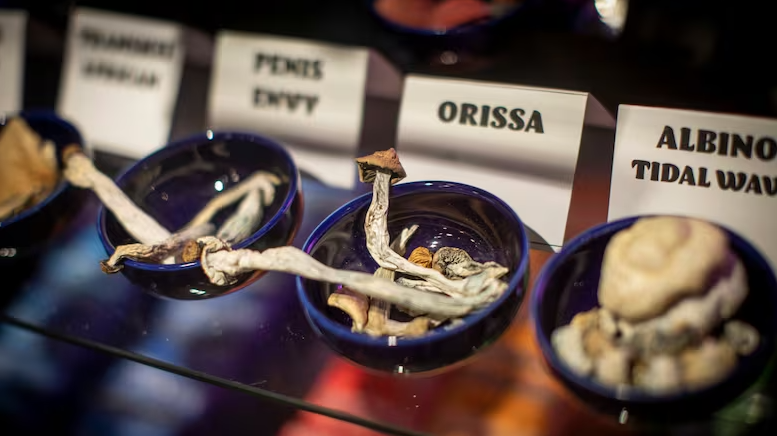B.C. Man Acquitted of Sexual Assault After Arguing Magic Mushrooms Caused Temporary Psychosis
Subhadarshi Tripathy
6/17/20252 min read


A British Columbia man accused of sexual assault has been acquitted after a judge ruled that he was in a state of “automatism” — unconscious and not in control of his actions — due to the effects of magic mushrooms and cannabis.
Leon-Jamal Daniel Barrett, 30, faced multiple charges including sexual assault, breaking and entering, and obstructing a police officer after a violent incident in March 2019. The judge concluded that Barrett was so severely intoxicated that he could not be held criminally responsible for what he did.
The ruling, issued in March and posted publicly last week, underscores the legal and moral tensions in Canadian law around extreme intoxication as a defence for violent crimes.
A Violent Attack — But No Criminal Intent
On the night of the incident, Barrett — who struggled with depression and anxiety — consumed magic mushrooms after smoking cannabis. In his drug-induced state, he claimed he believed he was on a divine mission to save humanity through “sexual congress” with a woman chosen by God.
Instead, he encountered a stranger, whom he attacked, groped, and attempted to undress. She resisted, fought back, and eventually escaped. Barrett, still naked and covered in blood after later stabbing himself in the chest, was arrested by police after another erratic encounter.
Although there was no dispute about what Barrett did, the court found that he was unaware of his actions due to the drugs and could not form the intent required to convict him.
A Controversial Legal Loophole
Barrett’s acquittal is tied to a 2022 Supreme Court of Canada ruling that struck down a section of the Criminal Code (Section 33.1) barring the use of extreme intoxication as a defence. The top court ruled that it was unconstitutional to convict someone who had no voluntary control over their actions.
Since then, Parliament has passed new legislation, but it did not apply retroactively to Barrett’s case.
University of British Columbia law professor Isabel Grant criticized the outcome:
“Too bad you suffered that huge, violent trauma — he was morally innocent. That’s not a great message for the criminal justice system to be sending.”
She and other critics argue that allowing intoxication as a legal shield undermines protections for victims, particularly in sexual assault cases.
Judge Acknowledges the Victim’s Pain
The judge, Timothy Hinkson, acknowledged that the ruling was difficult and emphasized that Barrett will have to live with the knowledge of what he did while in a dissociative state.
“The scar that he bears will be a constant reminder of these actions,” Hinkson wrote.
“It is my sincere hope that he finds some way to redeem himself.”
The victim, meanwhile, continues to live with trauma and chronic pain.
Broader Legal and Political Implications
The ruling has renewed debate over how Canada handles drug-induced violence. While new legislation attempts to close loopholes, legal scholars say there’s still uncertainty about how future cases involving psychedelics and other substances will be treated.
In the meantime, advocacy groups are calling for stronger protections for victims and clearer rules around drug use and criminal liability.
News
Stay updated with the latest BC news stories, subscribe to our newsletter today.
SUBSCRIBE
© 2025 Innovatory Labs Inc.. All rights reserved.
LINKS
